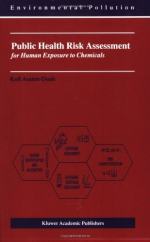|
This section contains 378 words (approx. 2 pages at 300 words per page) |

|
Farmers in Tifton, Georgia, were distraught when more than 1,000 acres of their peanut crop died after a lime additive had been applied to their fields. They discovered that the fertilizer they had used had had chemical waste from nearby steel mills— with high concentrations of lead and zinc—purposefully mixed in with the limestone. The farmers were even more upset to learn that recycling chemical waste into fertilizer is legal and totally unregulated by the Environmental Protection Agency.
Those who oppose the recycling of industrial chemical waste and sludge into fertilizers contend that the heavy metals are absorbed by the plants, which are then passed up the food chain when the plants are eaten by livestock or humans. Spreading fertilizer enhanced with chemical waste or sludge on crop fields or pastures is “a recipe for catastrophic disruption...
|
This section contains 378 words (approx. 2 pages at 300 words per page) |

|




